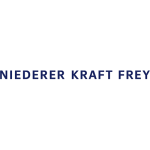Switzerland has delivered some of the largest outbound Chinese acquisitions over recent years and, unlike the EU, has not imposed any formal investment restrictions. Manuel Werder, Philippe Weber, Daniel Eisele and Elga Reana Tozzi of Niederer Kraft Frey examine the market’s rules of entry
In recent years, Chinese companies have enjoyed a dominant position in the global M&A league tables, driven by the growing appetite of consumers in China. However, in Switzerland as in the rest of the world, the strength of China's position in the market has been to some degree tempered in the last year as a result of increasing market scepticism and scrutiny, in part exacerbated by the ongoing trade war with the United States.
Swiss companies and assets have historically been popular targets for Chinese investors. For example, in 2017 ChemChina completed its $43 billion takeover of SIX Swiss Exchange-listed Syngenta, the biggest foreign takeover by a Chinese company. Other prominent transactions with values above $1 billion were the acquisition of Infront Sports & Media by Dalian Wanda Group and the 2016 takeovers of gategroup and Swissport by HNA. More recently, however, HNA's success in the Swiss marketplace has been dampened by the cancelled IPOs of both companies in 2018, followed by the sale of gategroup to RRJ Capital announced in March 2019 and ongoing reports of a planned sale of Swissport.
There are mainly four different types of active Chinese buyer in M&A transactions. The first type is the state-owned enterprise (SOE), such as PetroChina and Bank of China. The second is the privately-owned enterprise (POE), which is becoming increasingly active in cross-border M&A deals involving Switzerland. This buyer is most commonly driven by the desire to access to new technologies and increase market share. Examples of POEs include Lenovo, Hainan Airlines and Huawei. The third type is the small but growing China-based private equity firm. Finally, sovereign state-owned wealth funds (for example, China Investment Corporation) also use M&A transactions to diversify China's foreign currency reserves. These latter tend to focus on smaller but high-value stakes in large companies.
While Switzerland's attitude to Chinese investment is arguably becoming increasingly cautious, it remains generally open and favourable. Unlike in the EU, there has been no formal initiative for the introduction of investment control measures. The following factors motivate Chinese companies to undertake M&A transactions with Swiss companies:
Switzerland offers economic and political stability and security;
the Swiss legal and regulatory framework is favourable for M&A transactions with Chinese buyers (as further described below, there is a double taxation agreement between China and Switzerland and, so far, the free trade agreement between China and Switzerland is one of only few such agreements that China has concluded with a continental European country);
Switzerland is rich in human capital and offers reliable and well-educated employees;
M&A transactions with Swiss companies allow for an efficient inroad to advanced technical know-how;
the acquisition of companies in Switzerland offers Chinese groups relatively quick and easy access to the Swiss market;
it is a good way to acquire recognised brands (for example in technology or luxury goods), which may provide legitimacy in the Swiss, European and even global markets;
Chinese buyers have the potential to increase the value of the acquired Swiss companies (for instance by using valuable access to the Chinese and other markets).
In transactions involving Swiss companies that are listed on a stock exchange or are regulated (for instance financial institutions), proper disclosure of the Chinese buyer's ownership structure and regulatory status is becoming increasingly important, as evidenced by recent public cases, including that of HNA.
Due to the favourable legal framework and Switzerland's continued openness towards Chinese investors, we believe that there is a positive outlook for Chinese investment into Switzerland.
Investment approval
There are no Swiss laws of general application prohibiting foreign investments in Switzerland or subjecting them to prior approval. Therefore, foreign investors generally do not need formal approval for their investments in Switzerland and no special governmental authority monitors foreign investments. Foreign investments in certain regulated industries might require governmental permission. The competent authority and the approval process and timings depend on the specific industry.
Investment restrictions exist in particular in the sectors below; as a rule, the government is not entitled to golden shares but may make the approval or licence subject to certain conditions:
Financial market laws: If foreign nationals have a controlling influence over a bank, a securities trader or certain other prudentially-supervised entities active in the financial sector (finance companies), the granting of a licence by the Swiss Financial Market Supervisory Authority (Finma) is subject to additional requirements. Among others, the corporate name of the legal entity may not suggest that the entity is controlled by Swiss persons and the country or countries where the ultimate owner of the controlling interest is domiciled must grant reciprocity (which is the case if the relevant state is a member of the World Trade Organisation). Finma may impose additional conditions to the licence.
Lex Koller / acquisition of real estate: Acquisitions of residential (but not commercial) real estate in Switzerland by foreign or foreign-controlled persons is subject to strict limitations under the Lex Koller. Such properties can only be acquired if an authorisation is granted by the competent cantonal and federal authority(ies). Authorisation is not easily obtained and may take several weeks, if not months, to obtain.
The relevant licensing authorities may refuse to grant a licence to companies incorporated under foreign laws under the telecommunications act for radio communication licences, the nuclear act for nuclear power plants, the radio/TV act for broadcasting licences and the aviation act for the professional transport of passengers or goods, unless reciprocal rights are granted to Swiss persons by the respective foreign states. In the aviation sector, an aviation company headquartered in Switzerland must be under the actual control of Swiss citizens.
Competition clearance in general is overseen by the Swiss Federal Competition Commission (Comco). In the event of a merger or takeover of a Swiss bank which is considered necessary for reasons of creditor protection, Finma will replace Comco as the competent authority.
In the merger or acquisition of a controlling stake, Comco needs to be notified prior to deal closing if, in the last accounting period before the transaction: (a) the enterprises concerned reported a joint turnover of at least CHF2 billion ($2 billion) or a turnover in Switzerland of at least CHF500 million; and (b) at least two of the enterprises concerned reported an individual turnover in Switzerland of at least CHF100 million. Special thresholds apply for banks and insurance companies. The filing needs to be done after the signing of the relevant agreement but prior to closing. On receiving notice of a transaction, Comco must inform the enterprises within one month whether it will open a formal investigation. If Comco does not inform the enterprises within the one-month period, the transaction may proceed without reservation. If an investigation is opened, the parties cannot close the transaction. Comco must complete the investigation in four months.
As a rule, and unless a licence granted stipulates otherwise in its terms, an increase of an investment will not trigger additional approval requirements, unless the foreign investor newly acquires a controlling interest through the increase. For banks, securities traders and certain other prudentially-supervised financial institutions, any increase of a participation exceeding a threshold of 10%, 20%, 33% or 50% of the capital or voting rights must be notified to Finma. The same applies if a foreign investor decreases / exits its investments in such a company. As a rule, there are no exit obstacles and the repatriation of profits and capital is possible.
Investment techniques
The most commonly used legal entities for an investment are stock companies (AG) and limited liability companies (GmbH). Both have capital divided into shares and limited liability. They are both suitable for operational and holding purposes. Listed companies are usually constituted as AGs. In addition, certain special forms of investment companies (the Sicaf and the Sicav) are subject to the Collective Investment Schemes Act (Cisa). Sicaf is an investment company with fixed capital (close-ended) with the sole purpose of collective investment. Sicav is an investment company with variable capital (open-ended) whose capital is divided into entrepreneurial and investor shares. Sicafs and Sicavs are regulated by Cisa and supervised by Finma. As a non-corporate vehicle under the scope of Cisa, limited partnerships (LPs) are often used for collective investment.
These entities must be domiciled in Switzerland, must have the required minimum capital (CHF100,000 for an AG, CHF20,000 for a GmbH) and must be represented by at least one individual domiciled in Switzerland. In addition, publicly traded companies and companies that exceed certain thresholds with respect to total assets, turnover or number of employees must have an auditor. If changes occur (such as amendments to the articles of association, changes in the company's capital structure or changes in the authorised representatives), the competent commercial registry must be kept up to date. For Cisa-governed entities, various financial market regulations must be observed.
Dispute resolution
Switzerland has signed over 120 bilateral investment protection treaties (BITs). According to the United Nations Conference on Trade and Development (UNCTAD), Switzerland has the third largest network of such treaties after Germany and China.
The current BIT between Switzerland and China was signed in 2009 and has been in force since April 13 2010.
The Swiss court system is also relatively efficient. In the World Bank's rating for contract enforcement, Switzerland came 45th out 190 countries. According to this rating, the average time it takes to resolve a commercial dispute through a local first-instance court is 510 days. Appeal proceedings before the Swiss Federal Supreme Court are on average completed in 140 days.
Foreign claimants should note that they may be required to provide security for costs upon request of the counterparty in state court proceedings.
Apart from having an efficient court system, Switzerland also remains one of the foremost jurisdictions for arbitration. This position is the result of its liberal legal framework as well as its extensive and arbitration-benevolent case law and doctrine. In this regard, foreign investors should be aware that Swiss BITs systematically contain diagonal arbitration clauses, allowing investors to initiate arbitration directly against Switzerland. Most of these clauses provide for ad-hoc or International Centre for Settlement of Investment (ICSID) arbitration, while many others provide for International Chamber of Commerce (ICC) arbitration.
Swiss courts will also generally respect foreign judgments by a competent court, unless the foreign court violated due process requirements or rendered a decision that is contrary to Swiss public policy. The enforcement of judgments rendered in countries of the European Union, Norway and Iceland is governed by the Lugano Convention, which provides for facilitation both in terms of conditions for enforcement and applicable procedure.
Foreign international arbitral awards are recognised and enforced in Switzerland on the basis of the New York Convention, regardless of reciprocity. Foreign ICSID investment arbitration awards will be recognised and enforced pursuant to Article 54 of the ICSID Convention, which stipulates that ICSID awards will be enforced as though they were the final judgments of a domestic court.
Enforcement of Swiss court judgments can be expected in those jurisdictions with which Switzerland has an agreement for the reciprocal enforcement of judgments. Since Switzerland is signatory state of the Lugano Convention, Swiss court judgments are generally enforceable in all EU countries, as well as in Norway and Iceland, in a facilitated procedure. Whether a Swiss judgment is also enforceable in a particular foreign jurisdiction in the absence of a bilateral or multilateral agreement will depend on the local laws of that jurisdiction.
Arbitral awards rendered in Switzerland can generally be expected to be enforced in those jurisdictions that are signatories to the New York Convention. ICSID investment arbitration awards rendered in Switzerland will generally also be enforceable in all states that are signatories to the ICSID Convention.
Forex controls and local operations
As a principle, unrestricted amounts of liquid funds, for instance cash, foreign currency and securities (bonds and cheques etc.), can be imported into Switzerland, brought through Switzerland in transit or exported from Switzerland.
In the context of combating money laundering, certain declaration obligations (purpose, beneficial owner etc.) may arise, for example when transferring higher sums of money in foreign currencies or in the case of cross-border cash movement exceeding CHF10,000.
To date, Switzerland has taken a very liberal approach to crypto-currencies. For example, stock companies have been incorporated using crypto-currencies to pay the company's capital.
Tax
There is a double taxation agreement in place between Switzerland and China (the DTA-PRC) which follows the OECD Model Tax Convention and provides for beneficial residual tax rates for withholding taxes on dividends and interest payments (while there are no withholding taxes at all for royalty payments in Switzerland). In the case of a participation of 25% or more in the capital of a Swiss company, the Swiss dividend withholding tax is reduced from 35% to 5%. For interest payments, the residual withholding tax is 10%. It should be noted that withholding tax is levied on bank interest, but normally not on interest on intragroup loans. Due to this beneficial DTA, the use of intermediary tax jurisdictions is not necessary. The Swiss tax system has three levels: federal, cantonal and municipal. The federal corporate effective tax rate amounts to 7.83%. The tax rates in the 26 cantons of Switzerland vary from 12.32% in the Canton of Lucerne (City of Lucerne) to 24.16% in the Canton of Geneva (City of Geneva). Zurich, with a tax rate of 21.15% (City of Zurich), is expensive, while Zug, with a tax rate of 14.51% (City of Zug), is very attractive (especially if you take into account that the travel time between Zug and Zurich is only about 20 minutes). There is also an annual capital tax at cantonal level of between 0.001% and 0.525% on net equity. The withholding tax on dividends is 35% for all companies with a residual tax rate of 5% or 10% based on the DTA-PRC (as mentioned above). The repayment of share capital, as well as of certain legal reserves from capital contributions, is exempt from dividend withholding tax (special repayment rules will apply for listed companies as of January 1 2020).
Since July 2016, Switzerland has applied revised regulations regarding the Swiss federal tax holiday scheme. The revised legislation provides for relief from federal corporate income tax for a maximum period of 10 years for industrial enterprises and production-related service providers. The federal tax incentives are linked to the number of newly created or maintained jobs by an enterprise domiciled in selected regional areas in Switzerland. It can lead to an annual tax credit of up to CHF95,000 for each newly created job and CHF47,500 for each maintained job. Depending on the number of newly created or maintained jobs, the effective tax rate may be substantially decreased to a low single-digit tax rate. There are also tax holiday schemes available at the cantonal level.
About the author |
||

|
|
Manuel Werder Partner, Niederer Kraft Frey Zürich, Switzerland T: +41 58 580 8435 W: www.nkf.ch Manuel Werder's practice focuses on corporate law and domestic and cross-border M&A transactions, including corporate restructurings and private equity and venture capital transactions. His expertise also includes commercial, contract, securities and stock exchange law issues. He has considerable experience advising Chinese parties, in particular on cross-border M&A transactions. He has advised Chinese clients in a great number of acquisitions relating to Swiss target companies and other matters and Swiss and international clients in connection with investments in China. |
About the author |
||

|
|
Philippe Weber Partner, Niederer Kraft Frey Zürich, Switzerland T: +41 58 580 8383 W: www.nkf.ch Philippe Weber specialises in large and complex domestic and cross-border M&A (including corporate reorganisations), capital markets and bank financing transactions, with a particular focus on listed entities and other large enterprises. He has devoted a substantial amount of time to advising banks, issuers and sophisticated investors (including private equity and sovereign wealth funds) in high profile capital markets transactions. Recent mandates include IPOs, SIX listings, rights offerings, PIPE transactions, high-yield bonds and innovative hybrid financing deals (including CoCos and other convertible securities, Basel III compliant Tier 2 instruments, capital notes, fiduciary certificates, EMTN programmes, bond issues, structured finance transactions, loan facilities and more). |
About the author |
||

|
|
Daniel Eisele Partner, Niederer Kraft Frey Zürich, Switzerland T: +41 58 580 8366 W: www.nkf.ch Daniel Eisele specialises in large and complex litigation and arbitration proceedings, commercial contracts and international business transactions across all kind of industries, in particular in connection with trade and commerce, finance and banking and sports. Daniel has more than 25 years of professional experience and is very experienced in drafting and negotiating legal documents. He has special legal knowledge in the sports industry and has been involved in many major international sports events that have taken place over a period of more than 25 years, namely in relation to television, other media, marketing, sponsorship, licensing, ticketing, hospitality and event organisation. |
About the author |
||

|
|
Elga Reana Tozzi Counsel, Niederer Kraft Frey Zürich, Switzerland T: +41 58 580 8421 W: www.nkf.ch Elga Reana Tozzi is a certified tax expert and specialises in large and complex cross-border M&A, initial public offerings, management buyouts and private equity transactions. She advises national, international and listed companies as well as substantial investors and shareholders. She also advises entrepreneurs and high net worth individuals on all tax matters. |



